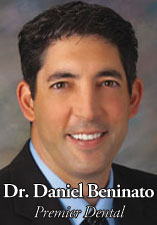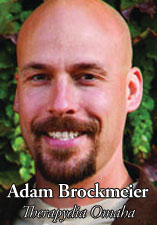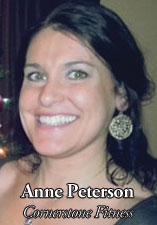While we all have basic health needs and care guidelines that should be met regardless of gender, there are also specific issues that women should be aware of and attend to in order to continue leading healthy, happy lives. For this reason, local health care professionals are wonderful resources for women of all ages in our community as they offer a wealth of specific recommendations and are a hub for the latest health and wellness information in their area of expertise.
Dentistry
Everyone needs to take care of their oral health, but female hormones can lead to an increase in some problems, such as:
• Cold sores and canker sores
• Dry mouth
• Changes in taste
• Higher risk of gum disease
Taking good care of your teeth and gums can help you avoid or lessen oral health problems.
 The health of your mouth and teeth can be a sign of your body’s overall health. Many diseases, such as diabetes, heart disease, cancer, and some eating disorders are linked with oral health problems. Regular dental exams help you maintain good oral health and avoid related health problems. Dr. Daniel Beninato of Premier Dental emphasizes, “It is extremely important for women to keep all preventative appointments in order to stay on top of their oral health and to ensure they do not develop gum disease!”
The health of your mouth and teeth can be a sign of your body’s overall health. Many diseases, such as diabetes, heart disease, cancer, and some eating disorders are linked with oral health problems. Regular dental exams help you maintain good oral health and avoid related health problems. Dr. Daniel Beninato of Premier Dental emphasizes, “It is extremely important for women to keep all preventative appointments in order to stay on top of their oral health and to ensure they do not develop gum disease!”
Women may be more susceptible to oral health problems because of the unique hormonal changes they experience. Hormones not only affect the blood supply to the gum tissue, but also the body’s response to the toxins (poisons) that result from plaque buildup. As a result of these changes, women are more prone to the development of periodontal (gum) disease at certain stages of their lives, as well as to other oral health problems.
There are five situations in a woman’s life during which hormone fluctuations make her more susceptible to oral health problems – during puberty, at certain points in the monthly menstrual cycle, when using birth control pills, during pregnancy, and at menopause.
1) Puberty
The surge in production of the female hormones estrogen and progesterone that occurs during puberty can increase the blood flow to the gums and change the way gum tissue reacts to irritants in plaque, causing the gum tissue to become red, tender, swollen, and more likely to bleed during brushing and flossing.
2) The monthly menstrual cycle
Due to the hormonal changes (particularly the increase in progesterone) that occur during the menstrual cycle, some women experience oral changes that can include bright red swollen gums, swollen salivary glands, development of canker sores, or bleeding gums. Menstruation gingivitis usually occurs a day or two before the start of the period and clears up shortly after the period has started.
3) Use of birth control pills
Women who take certain birth control pills that contain progesterone, which increases the level of that hormone in the body, may experience inflamed gum tissues due to the body’s exaggerated reaction to the toxins produced from plaque. Tell your dentist if you are taking an oral contraceptive.
4) Pregnancy
Hormone levels change considerably during pregnancy. An increased level of progesterone, in particular, can cause gum disease any time during the second to eighth month of pregnancy – a condition called pregnancy gingivitis. Your dentist may recommend more frequent professional cleanings during your second or early third trimester to help reduce the chance of developing gingivitis. Tell your dentist if you are pregnant.
Additionally, women who are trying to get pregnant or are going through infertility treatment need to make sure they keep their regular scheduled oral hygiene appointments. Gum disease may increase a woman’s risk of miscarriage. Dr Ananya Mandal, MD reports, “Gum disease may reduce the chances of getting pregnant. Poor oral health is as bad for fertility as obesity…delaying conception by about two months according to the latest research.”
5) Menopause
Numerous oral changes can occur as a consequence of advanced age, the medications taken to combat diseases, and hormonal changes due to menopause. These oral changes can include altered taste, burning sensations in the mouth, greater sensitivity to hot and cold foods and beverages, and decreased salivary flow that can result in dry mouth.
Dry mouth, in turn, can result in the development of tooth decay and gum disease, because saliva is not available to moisten and cleanse the mouth by neutralizing acids produced by plaque. Dry mouth can also result from many prescription and over-the-counter medications that are commonly prescribed to older adults.
Orthopedics
 Therapydia Omaha owner Adam Brockmeier, DPT, offers the following advice for women based upon his specific expertise:
Therapydia Omaha owner Adam Brockmeier, DPT, offers the following advice for women based upon his specific expertise:
“As a Physical Therapist I see women on a regular basis for osteoporosis programs, pre- and post-partum back pain, sport injuries and general musculoskeletal injuries.
Back pain before or after pregnancy is fairly common secondary to the extra stressors being placed on the spine from the baby and resultant strain placed on the back extensor muscles, joints of the back and pelvis, and spinal ligaments. I work with the individual by teaching her how to activate her core musculature to help stabilize these structures and offset the stress on the back muscles. Along with pregnancy comes the release of certain hormones that cause joints to become more mobile and ligaments to become more extensible or “stretchy” and being able to activate muscles that surround those joints to help in stability and avoid certain movements or poor mechanics such as posturing will limit the risk of injury and pain.
Osteoporosis is a weakening of bone and women can develop stress fractures more easily as well as run a higher risk of hip or leg fractures. The program will work on not only developing total body strength to limit stress on weakened bone but also work on weight bearing exercises to stimulate bone hardening due to activation of an ‘osteogenic stimulus.’ I incorporate balance exercise into this program which includes Tai Chi to help decrease the risk of falling and the resulting fractures which can start a downward spiral of decreased activity and overall less independence for the individual. Tai Chi is a slow and relaxing martial art which has been proven to decrease the risk of falling and one large study demonstrated a 60% reduction in fall risk.
The last major category of women’s health that I work with specifically is that of the female athlete. There is a higher risk of certain sport injuries in females vs. males attributed to certain differences in the female body and overall biomechanics. The Anterior Cruciate Ligament (ACL) rupture rate in females is almost twice that of males due to several researched and known factors. For example, women tend to have a wider pelvis which creates increased strain at the knee, they also have a narrower femoral notch where the ACL is attached and this creates greater shear/cutting force on the ACL, and they have less neuromuscular control (NMC) of their trunk (core/hips). NMC helps to dissipate forces on the knee when they land from a jump and less NMC will increase the transfer of ground reaction force directly to the ACL. Rupture of the ACL is likely as it is not designed to handle these significant forces but only act as a secondary knee stabilizer. I work with the athlete on ACL injury prevention programs which include strengthening of the legs and trunk, home exercise program development, and improved activation of their core and/or trunk stabilizers with bio-mechanical and neuromuscular training. This multi-modal approach helps the female athlete move better, create less strain on the ACL, and maximize their athletic performance overall. If surgery is required, I also work closely with the orthopedic surgeon to develop a rehabilitation program to return the athlete to her sport.”
Fitness
 Regular exercise is an important part of fitness and balance for women, and Cornerstone Fitness offers a variety of programs that are not only designed to help women reach their fitness goals but also to provide a sense of community. Anne Peterson of Cornerstone Fitness says, “We started a new program in 2014 called ‘The 12 Week Challenge’ that has been really popular among all of our clients; especially among women. This is a program designed to support our clients in their journey to lose weight, burn fat, build muscle and become healthier in general. This 12 Week Challenge consists of progressing workouts at least three times per week, a tailored Personal Fitness Portfolio that serves as a guide through proper nutrition, structured cardio, and the day-to-day mental journey. Additionally, the program provides weekly motivation, accountability and progress checks every four weeks to ensure that you’re on the right track. We also offer a ‘Will Workout for Wine’ event every Wednesday evening which is a ladies-only, beginner’s level boot camp that is packed with cardio and endurance exercises that are butt-bustin’ fun, followed by a glass of wine and some quality girl time.”
Regular exercise is an important part of fitness and balance for women, and Cornerstone Fitness offers a variety of programs that are not only designed to help women reach their fitness goals but also to provide a sense of community. Anne Peterson of Cornerstone Fitness says, “We started a new program in 2014 called ‘The 12 Week Challenge’ that has been really popular among all of our clients; especially among women. This is a program designed to support our clients in their journey to lose weight, burn fat, build muscle and become healthier in general. This 12 Week Challenge consists of progressing workouts at least three times per week, a tailored Personal Fitness Portfolio that serves as a guide through proper nutrition, structured cardio, and the day-to-day mental journey. Additionally, the program provides weekly motivation, accountability and progress checks every four weeks to ensure that you’re on the right track. We also offer a ‘Will Workout for Wine’ event every Wednesday evening which is a ladies-only, beginner’s level boot camp that is packed with cardio and endurance exercises that are butt-bustin’ fun, followed by a glass of wine and some quality girl time.”
Wellbeing
 It is easy, and common, for women to overextend themselves in balancing families, career, various activities, chores and tasks that need to be completed, and generally everything that life throws their way. Rick Magill of Comfort Keepers explains, “In a household if the wife or mom goes down, it is likely that the whole operation is in disarray and everyone else is affected. We can help in the event of something major such as surgery recovery or anything requiring a significant amount of downtime, as our caregivers can offer as little or as much assistance as you need to keep everything going smoothly and to keep everyone well cared for.” Comfort Keepers is a licensed home care agency that helps individuals live independently in their own homes. They provide a variety of care services including medication set-ups, bathing, transferring, meal preparation, and light housekeeping among many other necessities. They employ over 100 special Comfort Keepers (caregivers) who provide the care in people’s homes, facilities or hospitals for as little as one hour a day up to 24 hour care. Magill adds, “No matter how old or young you are, if you would benefit from assistance our Comfort Keepers are a wonderful option to keep in mind.”
It is easy, and common, for women to overextend themselves in balancing families, career, various activities, chores and tasks that need to be completed, and generally everything that life throws their way. Rick Magill of Comfort Keepers explains, “In a household if the wife or mom goes down, it is likely that the whole operation is in disarray and everyone else is affected. We can help in the event of something major such as surgery recovery or anything requiring a significant amount of downtime, as our caregivers can offer as little or as much assistance as you need to keep everything going smoothly and to keep everyone well cared for.” Comfort Keepers is a licensed home care agency that helps individuals live independently in their own homes. They provide a variety of care services including medication set-ups, bathing, transferring, meal preparation, and light housekeeping among many other necessities. They employ over 100 special Comfort Keepers (caregivers) who provide the care in people’s homes, facilities or hospitals for as little as one hour a day up to 24 hour care. Magill adds, “No matter how old or young you are, if you would benefit from assistance our Comfort Keepers are a wonderful option to keep in mind.”
Women’s wellness, health issues, risk factors and preventative care are constantly evolving, and with this ongoing process there is always more to learn and consider when making the best decisions regarding your health. We encourage all women to be proactive about their health and wellness, and to utilize all of the knowledge and tools that are available to them, so that their future is bright—and healthy!

